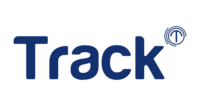1. SMART Basics
SMART goals start with specificity; in ERP, this means identifying the exact area you wish to improve or advance in, such as mastering a particular ERP module or enhancing cross-departmental communication. Your goals should be measurable, with clear indicators of progress, like completing a certification or reducing system errors by a certain percentage. Achievability is key; ensure that your aspirations are within reach given your current resources and constraints. Relevance is about alignment; your goals must align with your career path and the broader objectives of your organization. Lastly, time-bound goals keep you on track, so set deadlines to maintain momentum and focus.
2. Specific Goals
When setting goals in your ERP career, being specific is paramount. Instead of vaguely aiming to ‘improve database management,’ pinpoint the exact skills or knowledge areas you need to develop. For example, you might aim to ‘implement a new data validation process to reduce entry errors by 20% within the next quarter.’ This level of specificity guides your efforts and provides a clear benchmark for success.
3. Measurable Metrics
To gauge your progress in ERP, establish measurable metrics. This could involve quantitative data like ‘decrease inventory discrepancies by 15% within six months’ or qualitative measures such as ‘receive positive feedback on user training sessions.’ By quantifying your goals, you create tangible milestones that not only motivate you but also allow for clear assessment during performance evaluations.
4. Achievable Aspirations
While ambition is commendable, your goals must be achievable. Assess your current skill set, resources, and workload to set realistic goals. If you’re new to ERP, you might start with ‘complete an introductory course in ERP software use by the end of the month.’ This ensures that you’re setting yourself up for success rather than disappointment.
5. Relevant Results
Relevance in goal-setting means ensuring your objectives support your long-term career aspirations within the ERP field. If your ultimate aim is to become an ERP consultant, you might focus on goals like ‘lead a successful ERP implementation project within the next year.’ This ensures every effort contributes to your desired career outcome.
6. Time-Bound Targets
Finally, make your ERP career goals time-bound to instill a sense of urgency and focus. For instance, ‘achieve a 10% increase in system efficiency by the end of the fiscal year.’ Deadlines encourage consistent effort and help prioritize tasks, making them essential for effective performance evaluations.
SOURCE: https://www.linkedin.com/advice/1/heres-how-you-can-optimize-performance-hz8pf?trk=cah1

